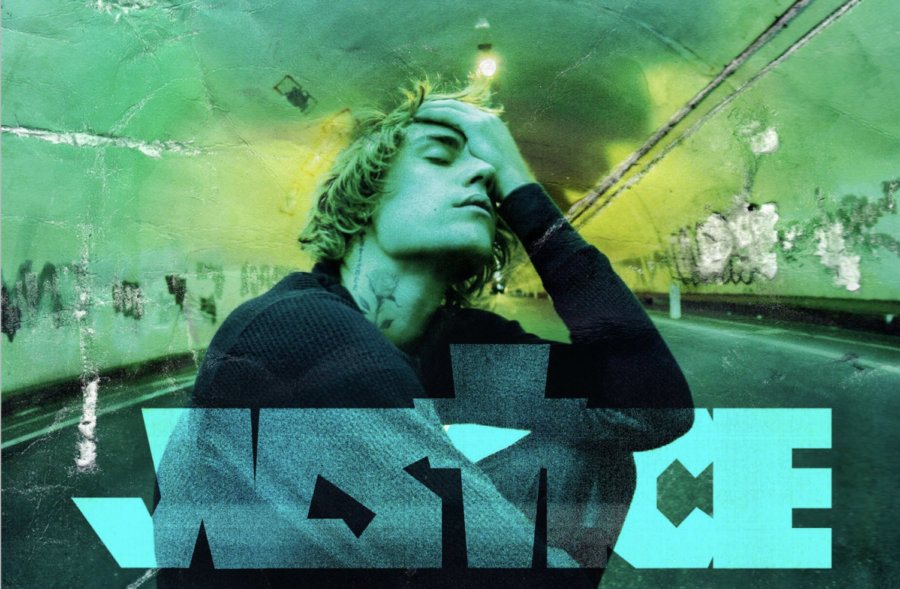Justin Bieber: Riding the Social ‘Justice’ Wave
March 29, 2021
“Injustice anywhere is a threat to justice everywhere.”
Justin Bieber’s sixth album Justice opens with a sample of a speech by Martin Luther King Jr., a decision that is baffling and definitely not entirely appropriate. The majority of the tracks on Justice consist of the pop singer gushing about the power of romantic love, a showcase of Bieber’s monolithic love for his wife Hailey Bieber, rife with metaphors comparing love to things like drugs and medicine. The swap from Dr. King’s rousing words to love song “2 Much” is jarring and out of place. Then, later in the album is the “MLK Interlude,” which features a sample of one of Dr. King’s sermons “But If Not.”
“But you’re just as dead at 38 as you are at 90. You died when you refused to stand up for right. You died when you refused to stand up for truth. You died when you refused to stand up for justice.”
I expected the usage of such a moving speech to be followed with singing about some cause, or at least a song that mentions a form of social injustice that is going on today. Instead the interlude is followed by synth-pop track “Die For You,” which is tied to the interlude in a way as it does talk about dying. That is, dying for the love of your life.
MLK controversy aside, Justice isn’t a bad album, and makes for a smooth listen. Bieber has a great voice and even better control over it, switching effortlessly between a calm chest voice and a light falsetto. His genre-roaming guest features, from Chance The Rapper in “Holy” to Daniel Caesar and Giveon on “Peaches,” keep the listening experience interesting.
The highlight of this album is the final song of Justice, “Lonely,” a ballad produced by Billie Eilish’s producer, Benny Blanco, and brother, Finneas O’Connell. The simple instrumental complements Bieber’s slightly raspy singing, and adds to the melancholy, raw emotions of the track.
“What if you had it all/ But nobody to call?/ Maybe then you’d know me/ ‘Cause I’ve had everything/ But no one’s listening/ And that’s just… lonely.”
It’s a charming and concise end to an earnest pop album; it speaks of Bieber’s experience living in the spotlight, and references the criticism he faced from a young age for actions made at an arguably immature stage of his life.
Conversely, the worst track just has to be “2 Much.” It’s saved a little by Skrillex’s production, but the awkward usage of the Dr. King sample throws everything off. Rather than being touching or inspiring, it gives the impression that Bieber is riding the current social justice wave by halfheartedly inserting civil rights quotes here and there. The Dr. King quotes revolve around racial injustice, while everything else refers to romantic love, with hints at religious faith.
Photo courtesy of BILLBOARD.COM

